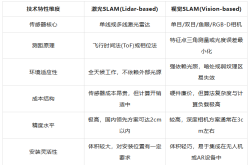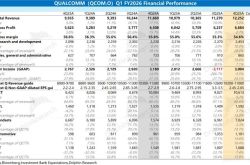Multinational Auto Giants Spark Layoff Wave, 100,000 Auto Workers at Risk
![]() 09/05 2025
09/05 2025
![]() 472
472
In just a month, a flurry of layoff announcements from several auto companies has emerged, with a cumulative total nearing 100,000 auto workers facing the prospect of unemployment. The repercussions of this layoff wave are far more significant than initially anticipated.
Over recent months, the global automotive industry has undergone an unprecedented and profound transformation. Multinational auto giants like Volkswagen, Volvo, Ford, and Nissan have all unveiled layoff plans, with the total number of layoffs approaching 100,000, sending shockwaves throughout the entire automotive sector. What drives these multinational auto companies to resort to massive layoffs? Is it a strategic maneuver meticulously calculated or a desperate move forced by market pressures? This article aims to unravel the underlying reasons.
Profit Declines Spark Widespread Layoffs Among Multinational Auto Companies
In April of this year, Volvo unveiled a strategic restructuring plan, aiming to slash costs by 18 billion Swedish kronor (approximately RMB 13.6 billion). Subsequently, on May 26, the company announced that approximately 3,000 mainly white-collar positions would be cut as a pivotal measure in its 18 billion Swedish kronor cost-reduction initiative. Among these, 2,200 are local positions in Sweden, with the remainder spread across other global markets. The total number of layoffs represents about 15% of Volvo's total workforce.
According to Volvo, these layoffs will incur a one-time restructuring cost of up to 1.5 billion Swedish kronor (approximately RMB 1.1 billion), equating to a severance package of up to 500,000 Swedish kronor (approximately RMB 370,000) per person, with the goal of reducing long-term operating costs.
Similarly, multinational auto brands such as Ford Motor, General Motors, Stellantis, and Nissan Motor have also recently announced layoff plans.
Ford Motor plans to lay off 4,000 employees in Europe and eliminate about 350 positions in its connected car software team. General Motors intends to cut around 20,000 positions, with 45% coming from the fuel vehicle R&D department and 30% involving middle management roles. Nissan Motor aims to lay off approximately 20,000 employees domestically and internationally by the fiscal year 2027, while reducing its global factory count from 17 to 10. Earlier, Volkswagen also announced a layoff plan, expecting to lay off about 35,000 people by 2030 and simultaneously reduce production capacity at its German factories.
In fact, the layoffs by these auto companies are not without justification. From a financial standpoint, in the first quarter of this year, Volvo's net profit was approximately 1.9 billion Swedish kronor (approximately RMB 1.4 billion), compared to 4.7 billion Swedish kronor (approximately RMB 3.5 billion) in the same period last year, marking a nearly 60% drop. Ford Motor's first quarter 2025 financial report revealed that its net profit had significantly shrunk from $1.33 billion (approximately RMB 9.55 billion) in the first quarter of 2024 to $470 million (approximately RMB 3.38 billion), with a net profit margin of only 1.2%. Additionally, the company's debt ratio in the first quarter was as high as 84.27%, and cash flow decreased by $2.1 billion (approximately RMB 15.1 billion).
In comparison, Nissan Motor faces an even more dire situation. In May of this year, Nissan Motor released its fiscal year 2024 financial report, showing a net loss of 670.8 billion yen (approximately RMB 32.6 billion), while in fiscal year 2023, Nissan still reported a profit of about 426.6 billion yen (approximately RMB 21 billion)...
It's worth noting that this layoff wave has also extended to the automotive supply chain. In November of last year, Bosch Group, a renowned automotive parts supplier, announced a layoff plan to cut 5,500 jobs worldwide, including 3,800 positions in Germany. Schaeffler Group planned to lay off about 4,700 people in Europe and close two factories during the same period. Continental AG has taken even more drastic measures than Bosch and Schaeffler. According to the "Continental AG's Ten-Year Large-Scale Restructuring Plan," this multinational parts giant is expected to lay off more than 20,000 people in the next two years, equivalent to 8.1% of its total workforce.
The Rise of Chinese Auto Companies as a Crisis Amplifier
In recent years, the Chinese market has been a crucial profit source for multinational auto companies. However, factors such as the recent slowdown in the global trend towards electrification, intensified market competition, and an unstable international trade environment have generally weakened the profitability of multinational auto companies, compelling them to reduce costs through layoffs, canceling investments, and other means.
Industry insiders suggest that the rise of Chinese new energy auto companies has exacerbated the financial crisis faced by these auto companies. Data indicates that in the first quarter of 2025, Ford's sales in China were 88,700 vehicles, a year-on-year decrease of 34.9%. Nissan's sales in China were 121,000 vehicles, a year-on-year decrease of 29.5%. Volvo's sales in China were 33,000 vehicles, a year-on-year decrease of 12%. Volkswagen's sales in China were 644,100 vehicles, a year-on-year decrease of 7.1%. Even first-tier luxury brands were not spared, with Mercedes-Benz and BMW both experiencing double-digit year-on-year sales declines in China in the first quarter of 2025, and Audi falling by about 7%.
In contrast, in the first quarter of 2025, BYD's sales exceeded one million units, reaching 1.0008 million vehicles, a year-on-year increase of 59.8%. Geely Auto's sales reached 589,800 vehicles, a year-on-year increase of 47.9%. Chery Auto's sales reached 590,500 vehicles, a year-on-year increase of 18.8%. Li Auto delivered 92,864 vehicles, a year-on-year increase of 15.5%. NIO delivered 42,094 vehicles in the first quarter, a year-on-year increase of over 40%. According to the China Association of Automobile Manufacturers, in May of this year, the number of new vehicles sold by domestic brands approached 70% of the total passenger vehicle sales...
Surprisingly, despite the continuous decline in sales of the aforementioned multinational auto companies, their investments in the Chinese market have continued to grow. Volkswagen plans to launch more electrified models to reverse the sales decline. General Motors intends to continuously introduce new models and technologies that cater to Chinese consumers' tastes to enhance market competitiveness and profitability. BMW's investment in the Chinese market also continues to increase, with plans to launch more than 10 new BMW models and multiple MINI and BMW motorcycle products in the Chinese market in 2025. Even in the face of sharply declining performance, Nissan Motor remains confident in the Chinese market. As the largest new energy vehicle market, China is seen by Nissan as a "key battlefield for revival." To boost sales, Nissan has chosen to launch a recovery plan named "Re:Nissan."
From the reporter's perspective, the predicament of the aforementioned multinational auto companies essentially reflects the "difficulty in turning around like an elephant" that traditional giants face during the industrial revolution. However, time waits for no one, and only by accelerating their breakout can they regain vitality.
Image: Sourced from the Internet
Article: Auto Review
Layout: Auto Review





